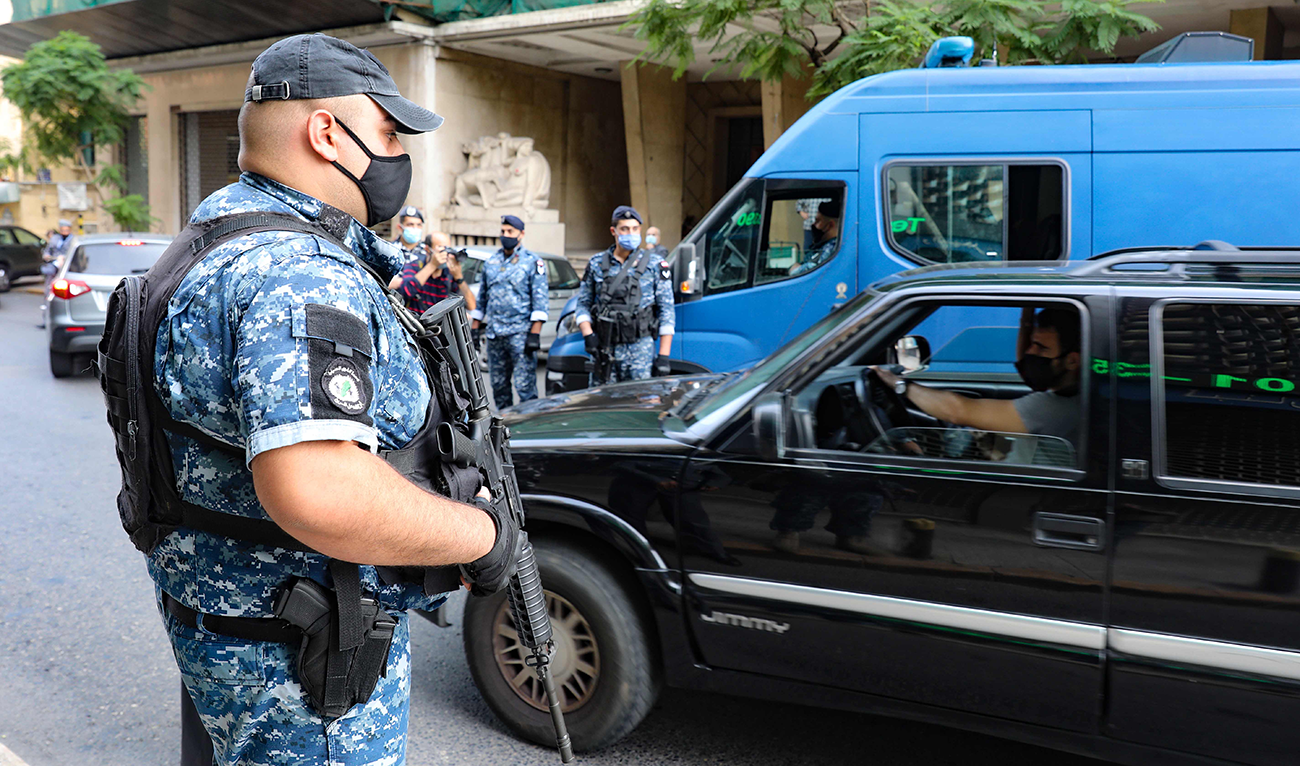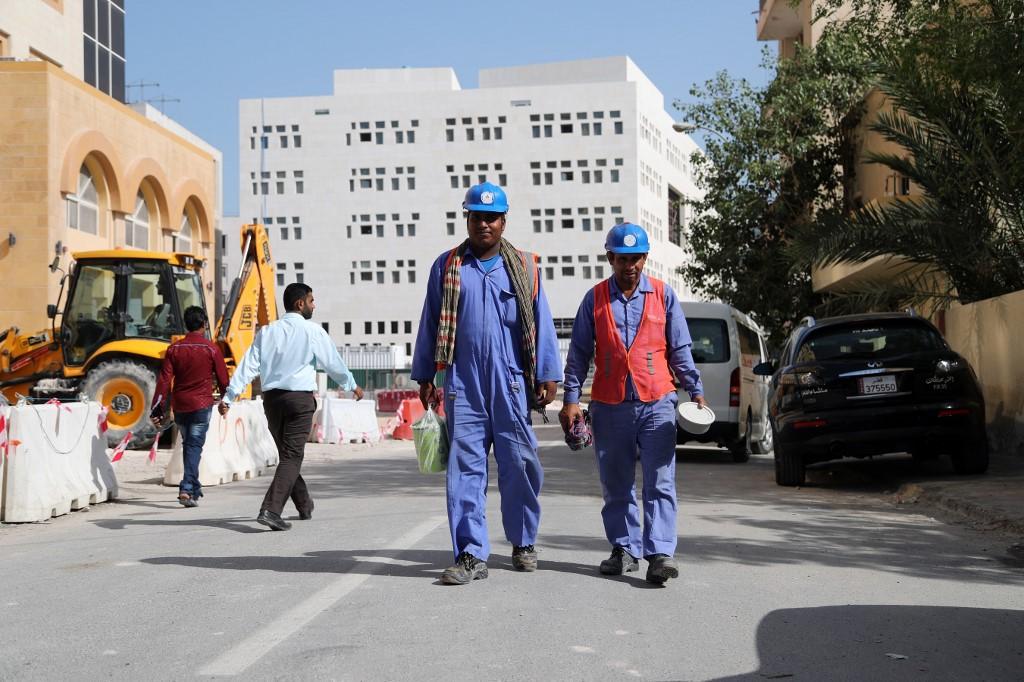Activists protest against total closure in Lebanon
BEIRUT: Activists from civil movement groups staged a sit-in outside the Ministry of Interior in Beirut on Wednesday afternoon to protest the deteriorating economic situation in light of the lockdown imposed until the end of November.
The activists carried the Lebanese flag and chanted slogans, including “the revolution will go on.” A large number of Internal Security Forces (ISF) personnel were deployed in the vicinity of the ministry to prevent protesters from entering its premises.
The protesters said they were not against the decision to close businesses due to the coronavirus disease (COVID-19) pandemic, but were calling on the state and authorities to help the most impoverished people in light of deteriorating difficult living conditions.
Khalid Abu-Ismail, head of economic development and poverty at the UN Economic and Social Commission for Western Asia (ESCWA), said a few days ago that Lebanon’s ranking had dropped and poverty rates had doubled, hitting 55 percent of the total population.
Abu-Ismail said that there was a loss of food security, most pronounced in the poorest areas in northern and southern Lebanon, especially among workers with daily wages.
Just as the protests took place, Nicolas Chammas, president of the Beirut Traders Association, conveyed to Caretaker Interior Minister Brig. Gen. Mohammed Fahmy that “traders are angry due to the decision to completely close businesses, the disparity in the implementation of this decision in different regions, and the impact of the closure on traders in light of the deteriorating economic situation.” He asked the minister to reconsider the decision.
Chammas told Arab News: “Hunger can spur riots that lead to dangerous consequences. We are fully aware of the decisions taken to protect the public’s health, but there is also hunger (to take into consideration). Some of those affected (by the closure) are calling for civil disobedience or the violation of the closure decision.”
Tony Eid, head of Achrafieh’s Merchants Association, told Arab News: “Traders are demanding greater discipline during the period of complete closure, and we are keen to implement the measures to contain the spread of the virus.
“We hope that things will improve next month as it is full of holidays, and we count on this to compensate for our losses,” he added.
On Wednesday the civil movement groups denounced the arrest of Makram Rabah, a political activist and lecturer at the American University of Beirut, at Rafic Hariri International Airport in Beirut as he was leaving for Dubai on Monday.
The groups, affiliated with Liqaa Teshrin (the October Meeting), condemned “the security practices, the suppression of freedoms, and the negativity adopted by the corrupt system to impede the prospects of achieving the desired reforms to save the country.”
On Wednesday Rabah expressed his concerns about “tyrannical practices and the fabrication of files” against him.
He explained in a statement to the Central News Agency (Al-Markazia) that he was arrested without a judicial warrant, and a security file was fabricated against his due to his political stances.
Rabah said: “I am against any person or party that violates Lebanese sovereignty, and the first of these are Israel and Hezbollah because, in my view, they are equal in their violation of Lebanon’s sovereignty.
“My political position is very clear, and even if I raised any suspicions, there are standard procedures that are supposed to be implemented,” he said. “However, in my case, I am a lecturer at the American University of Beirut and a consultant, and my father is a former member of the Supreme Judicial Council, and all my stances are known. Therefore, whoever wants to obtain the contents of my phone can access my social media pages and follow my media appearances, but requesting the confiscation of my passport is not acceptable.”
He added: “If there is a reason for my arrest, the decision must be issued by the Public Prosecutor at the Court of Cassation, not by an officer in the security services.”

Lebanon begins 2-week lockdown as COVID-19 cases surgeLebanon reinstates lockdown amid economic crisis



